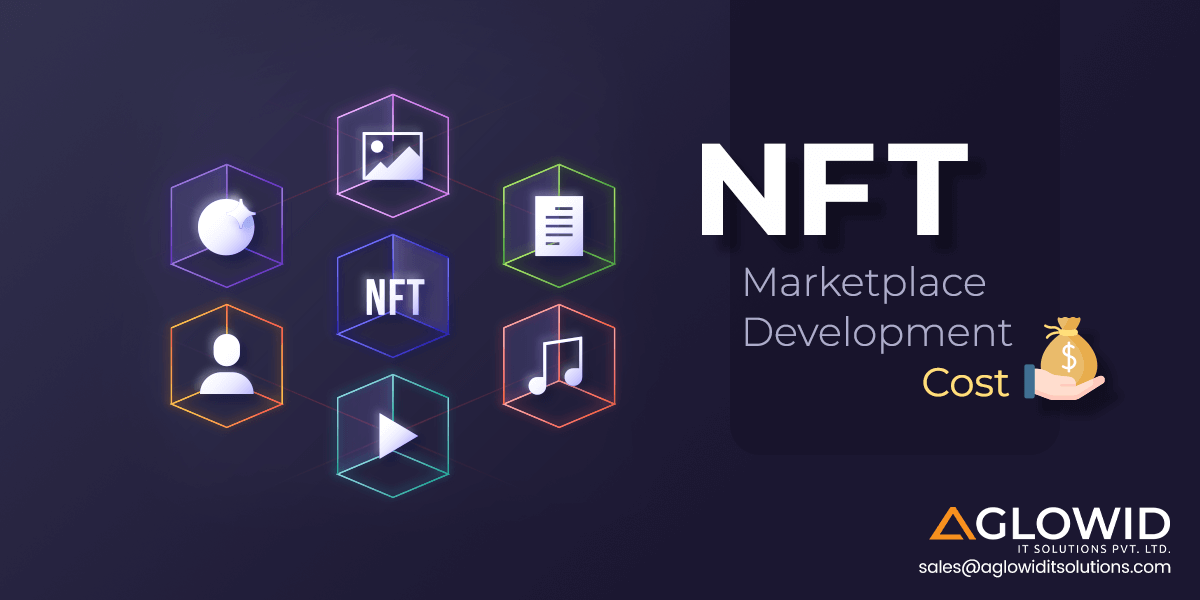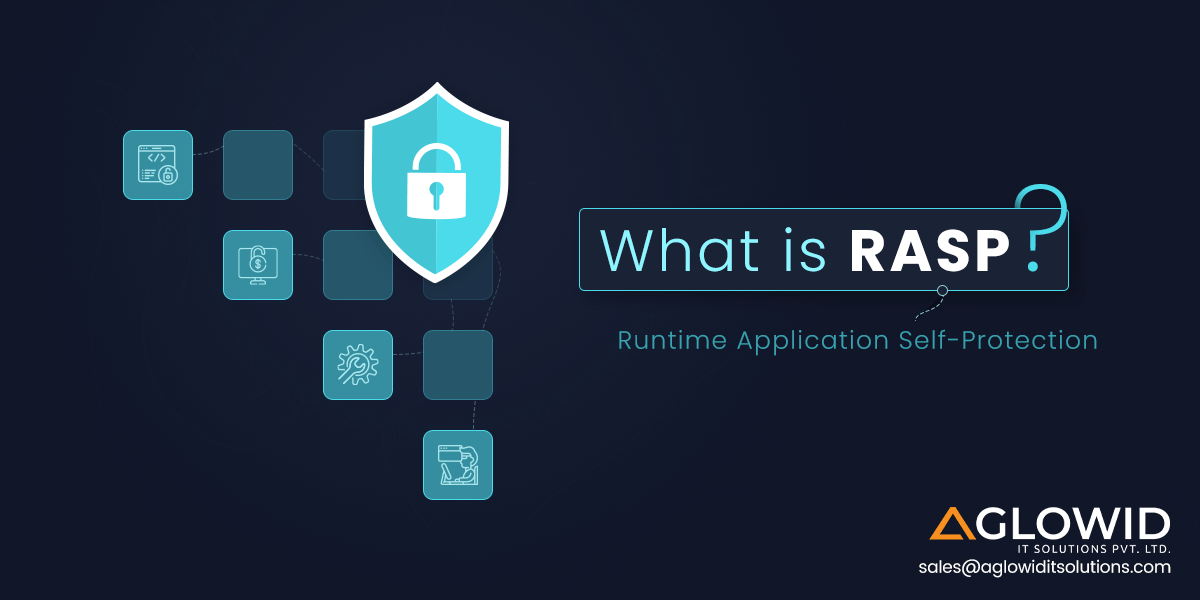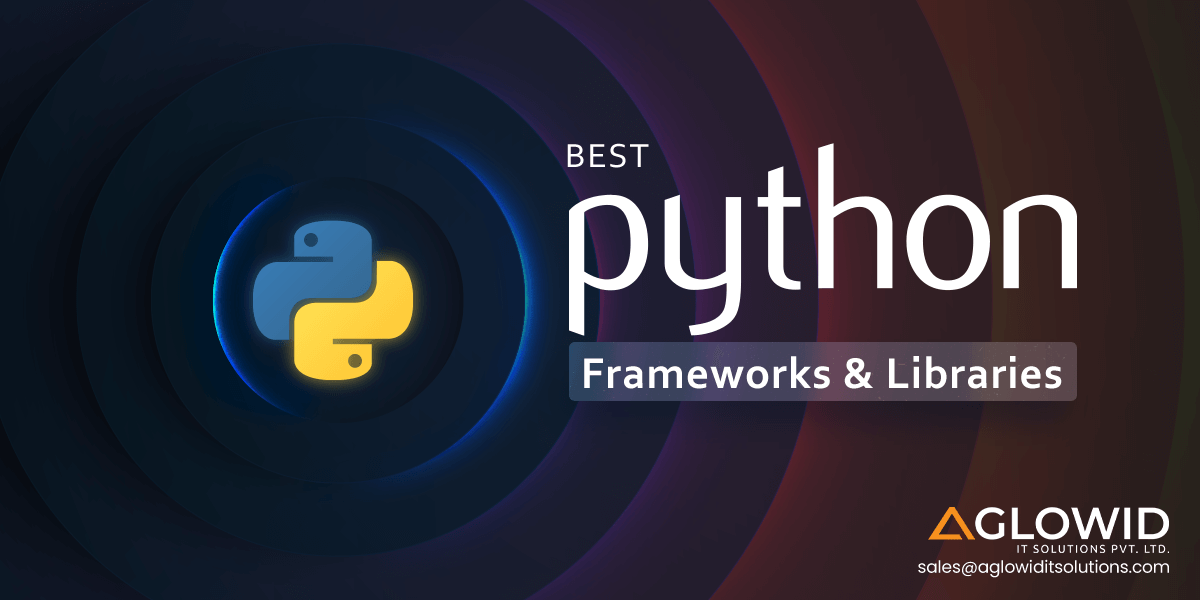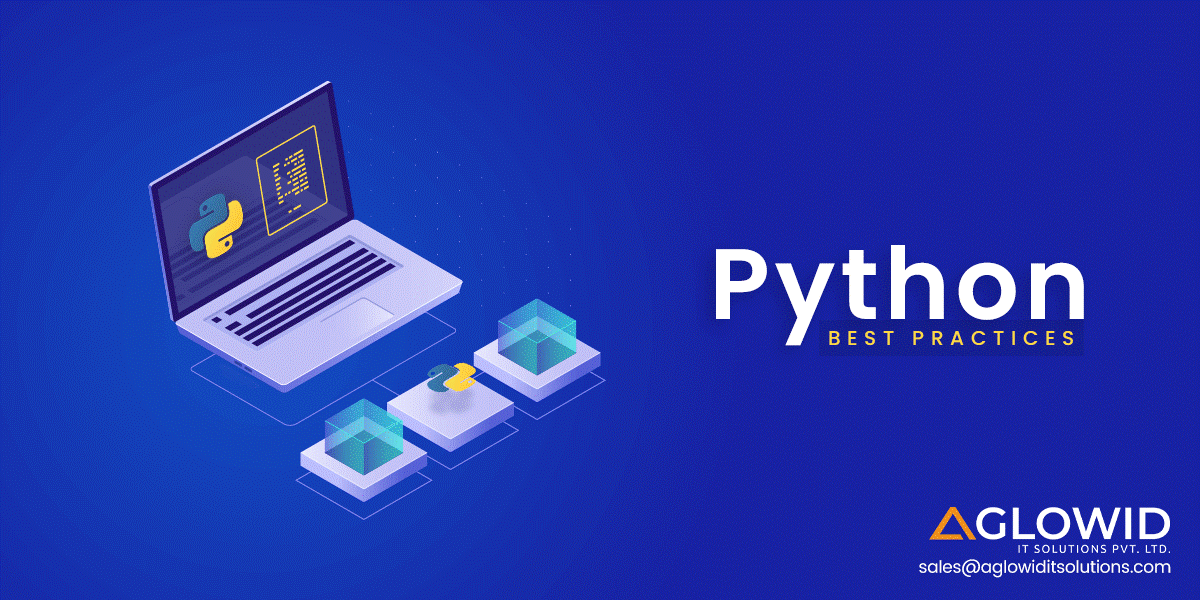Quick Summary:
Non-Fungible Token (NFT) Development is becoming a trend-setter in the digital era. The market cap of NFT has grown significantly by 138.7 percent as of the beginning of the third quarter of 2021. In addition to the NFT owners, the NFT markets have benefited from this remarkable rise in NFT. It has been at the forefront of discussion for a while now on building an NFT Marketplace. Do you desire to learn the cost associated with developing an NFT clone? To fully comprehend the NFT Marketplace Development cost, let’s delve more into this subject.
Despite being around since 2014, NFT was hardly known. Nevertheless, it has become extremely popular as both the blockchain and NFT have grown in popularity. Because NFT is now available to regular consumers, NFT trading is increasing at an alarming rate. The use of cryptocurrency exchanges will undoubtedly result in an increase in the number of persons buying and selling cryptocurrencies. As evidence of white label NFT Marketplace expansion, the following statistics will be provided:
Marketplaces have benefited most from the NFT hype as sales of digital collectibles surged to USD 10.7 billion in Q3 of 2020, up from USD 1.3 billion in Q2 of 2020.
NFT trading volume rose by 704% between Q2 2021 and Q3 2021. (CNBC)
$80 billion + will generated by NFT Market By 2025.
$41 billion + in cryptocurrencies were exchanged On the NFT platform in 2021.
The Non-Fungible Tokens Market size is expected to grow from USD 3.0 billion in 2022 to USD 13.6 billion by 2027, at a Compound Annual Growth Rate (CAGR) of 35.0% from 2022 to 2027
$91 million + is the Market Value of NFT, with the highest worth. It is called “The Meg.”
$10 – $20 million NFTs are exchanged on the blockchain network every week.
The number of NFT art sales surpassed 1.5 million in a single month in 2021.
Marketplaces for NFTs, such as OpenSea, Superfarm, and Rarible, have emerged as the core of funding and high earnings. However, the presence of many NFTs, which means that the source of income goes beyond the direct manufacturing and sale of NFTs, makes the NFT Marketplace a significant location.
This article will examine the price of developing the NFT Marketplace and what blockchain fans should know before getting involved.
What is an NFT Marketplace?
According to Wikipedia, “NFT is financial security made from digital data kept on a blockchain. An NFT’s owner can transfer an NFT’s ownership, which is documented on the blockchain and permits the trading and selling of NFTs”.

An NFT Marketplace is a digital storefront where various expensive crypto-collectables are auctioned off. Purchasers or investors use Bitcoin or Ether to purchase the non-fungible virtual goods that the makers sell. Every transaction when an NFT is acquired involves a fixed fee charged by the NFT market.
The buyer’s investor receives a token after purchasing an NFT. The token, in this case, is a unique identification code that contains the evidence of ownership and details on the creator, provenance, and authenticity. By placing bids in the online auction held by an NFT Marketplace, consumers can acquire a variety of artwork, gaming items, memes, fashion accessories, and other items. Before diving deep into the things related to NFT marketplace development, let’s look at the cost of essential NFT Development.
Sample NFT Marketplace Cost Breakdown
The cost can be calculated by the App Development Company specializing in NFT Development and can be categorized in the following manner:
| Factors | Price |
| Design | $5000 |
| Development | $100000 |
| Testing | $10000 |
How much does it cost to build an NFT Marketplace?
It takes a lot of time and money to create an NFT market platform from the Foundation with the most cutting-edge features and security measures based on blockchain technology. The approximate NFT Development Services start from $50000. And these prices can vary depending on the customizations you want. Below is a list of some of the essential factors that impact the NFT App Development Cost:
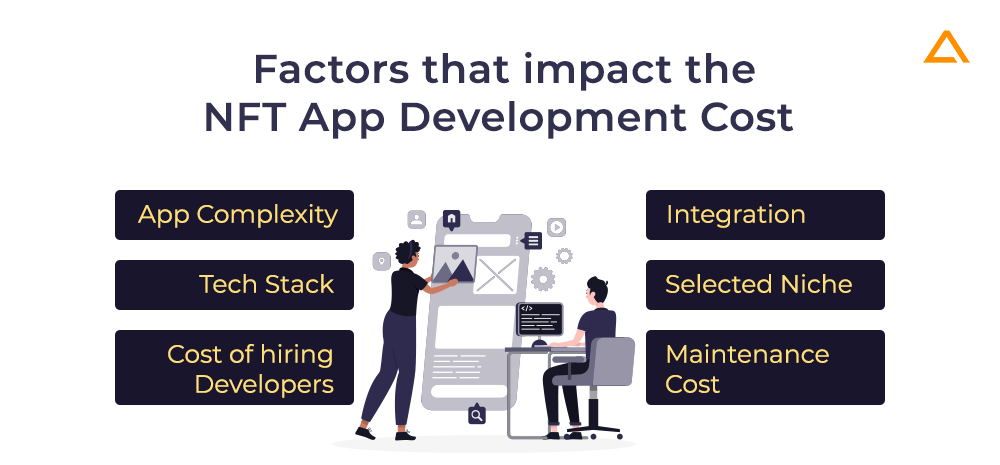
App Complexity
The main thing that can impact the cost of NFT Marketplace Development is the app complexity. This will include all the features you want your application to have. Besides this, it also involves of the third-party API integration it offers support. Some of the popular features contained in the white label NFT Marketplace Development are as follows:
- Fashionable items
- Optional Search Functionality
- Live Auction Specifications
- Storefront
- Wallet
- Bid and Buy
- accepting a range of payments
- Features of instant notification
- Provision for 24-hour customer service
Also Read : Guide to Develop Online B2B Marketplace
Tech Stack
The Tech stack plays a vital role in creating any application. And NFT Development Company is no different from them. The general tech stack used by the NFT Marketplace Development Company is blockchain platforms, NFT standards, Front-end platforms, and storage platforms.
| Tech Stack Used | |
| Blockchain Platforms | Ethereum, Flow, Cardano, Tezos |
| NFT Standards | ERC-721, ERC-1155 |
| Front-end Frameworks | React, Angular, Vue |
| Storage Platform | Pinata, Filecoin, IPFS |
Cost of Hiring NFT Marketplace Developers
The cost of NFT App Development also depends on the cost of the developers you are hiring. The critical thing that should be kept in mind while hiring developers are as follows:
Region: The cost of hiring the developers also depends on the area from which you’re hiring a developer. The cost of hiring a dedicated developer differs based on geolocation. For example, hiring developers in the US would be more expensive than hiring developers from East Asian countries like India.
Experience: The experience of developers also impacts the cost to Develop NFT and depends on the developers’ expertise. If you plan to hire developers, You can decide what to choose from are:
- Junior developers
- Intermediate developers
- Senior developers
Hiring approach: The cost also depends on the hiring process you have taken to onboard developers for your project. You can either go for in-house developers, off-shore developers, or freelance developers.
Integration
The more features you want to add to your project, the higher the possibility of using third-party tools. So does the cost of NFT Platform Development, as it supports several third-party APIs for various functionalities.
Selected Niche
The cost of NFT Marketplace Development Services also depends on the NFT market categories you have chosen as your niche. If you’re going for the collectables, the app needs to be more secure than the open market. The breakdown of the four categories of the NFT Marketplace is as follows:
Since NFTs are cryptocurrency assets, it should be no surprise that the markets where they are sold vary widely in terms of style, topics, forms, and other factors. In a bit of classification:
| NFT Market Categories | Price |
| Open & Premium Marketplace | $50,000 – $150,000 |
| Curated & Non-curated NFT Marketplace | $80,000 – $200,000 |
| Collectibles Marketplace | $60,000 – $250,000 |
| Games Marketplace | $100,00 – $500,000 |
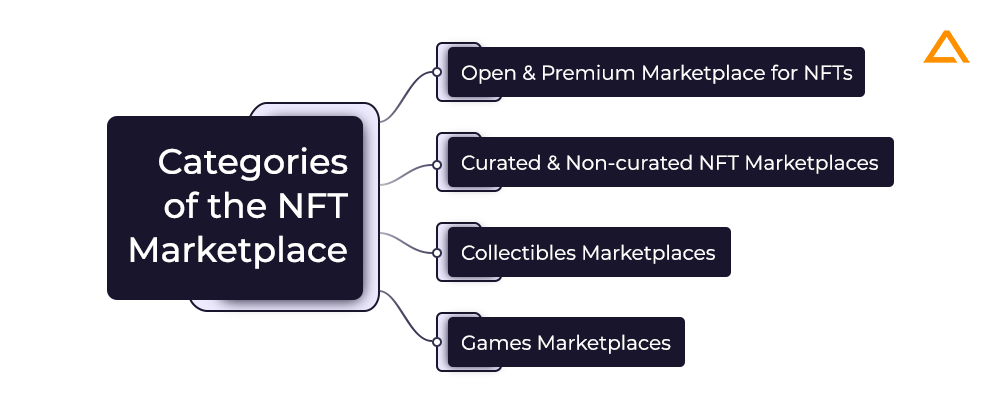
Open and Premium Marketplace for NFTs
A wide variety of diverse sources are permitted in the open market, which is available to anyone. In contrast to closed communities, these platforms include fewer premium features.
As of right present, Opensea is the top open NFT market. It supports various NFTs formats and has several registered creators despite being the earliest Marketplace available. These formats cover every material, including pictures, 3D models, movies, and others. Both physical and intangible assets may be included. With a 2.5 percent commission of the sales amounts, Opensea is an artist-friendly platform. The capability of searching NFTs using keywords makes Opensea one of the better options. Social media is another platform where this market advertises the works of producers. Because there are so many registered users on this Marketplace, each NFT listing receives less attention. The quantity of goods is substantial, as is the audience. Together, these factors saturate the interaction.
The Foundation NFT Marketplace is the most inaccessible yet best via Twitter invite codes. In 2021, the Foundation will be established. The platform gained popularity quickly and no longer hosts a variety of producers. Its reputation has grown by hosting only high-quality stuff. It currently accepts MP4, JPG, and PNG, and it will soon start getting 3D, AR, and audio.
Curated and Non-curated NFT Marketplaces
Digital artists frequently use specialized or niche sources to market and sell their projects and valuable works of art. Non-curated NFT platforms, on the other hand, are not curated by the firm that created them, and artwork can be sold online in a matter of minutes. Users do not need to verify to access these services.
Collectibles Marketplaces
They concentrate on memorabilia related to film and sports. NBA established NBA Top Shot, its own NFT Marketplace. NBA video highlights are available as non-fungible tokens that sports fans may buy, sell, and trade on this market.
Games Marketplaces
This NFT Marketplace deals specifically in online gaming.
NFT Marketplace Maintenance Cost
The other cost you need to keep in mind while NFT Marketplace Development is maintenance. The maintenance of the application is necessary if you’re planning to run your application for the long term. The maintenance cost includes the following factors you need to consider:
| Factors | Price |
| Server Costs | $10,000 |
| Third-party Integration | $2,000 |
| Application Updates | $2,000 |
| Bug Fixes | $5,000 |
| Security Patches | $10,000 |
Things to consider before developing the NFT Marketplace.
Many supporters are interested in developing an NFT Marketplace to link buyers and sellers because there is so much buzz about NFT. Before entering the realm of NFTs, read the important information below:
Non-Fungible Token Standards
The NFT market’s norms are what make it move. Because of these standards, the assets will behave in a particular manner and demonstrate how to use the fundamental features. At the moment, the NFT is typically created using two standards:
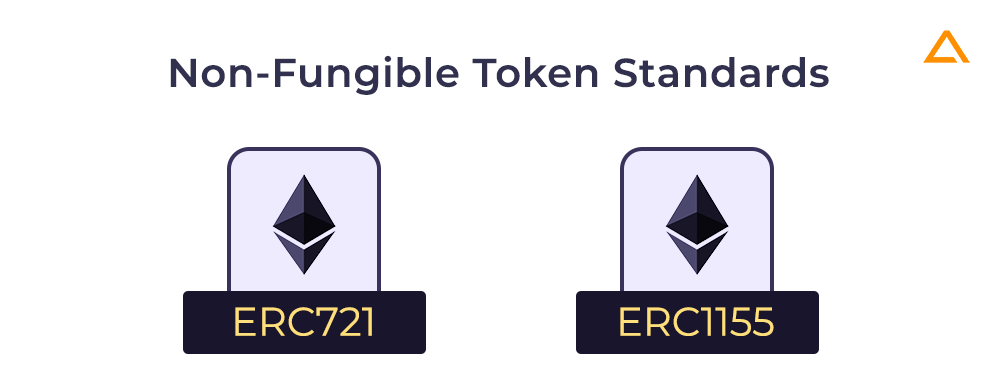
- ERC721
According to this standard, unique identifiers are mapped to addresses that indicate the identifier’s owner. The “TransferForm” function provided by ERC721 enables a means to transfer assets with authority.
- ERC1155
Instead of using IDs that represent a single asset, this NFT standard employs IDs that represent an entire class of assets. There is evidence that ERC1155 is significantly more effective than ERC721.
NFT Metadata
In the NFT space, there is a notion called “ownerOf.” This encourages us to hold the NFT owner in high regard. The owner of the token 45120 is ABC, for instance, according to a search for the ownerOf (45120) on the XYZ NFT’s smart contract. On markets like Opensea, you may verify this information.
But now, the issue is how that specific market comprehends what item 45120 is and what its distinctive qualities are. Here’s when metadata enters the picture. The description of a unique token ID, as well as any other attributes, are provided in the metadata.
Also Read : Cost to Build an Online Marketplace
Legal Documents
Aside from this, there is one area where a novice business owner has difficulty: understanding the legal paperwork required to create the most excellent NFT crypto platform. The following legal documents are primarily necessary for making the finest NFT Marketplace:
- Building A Business
- Contract Terms
- Community Norms
- Regarding Privacy
- Particulars of IP Consideration
How to build an NFT Marketplace?
The methods stated below are some of the ways to create an NFT Marketplace, with examples provided for clarity:
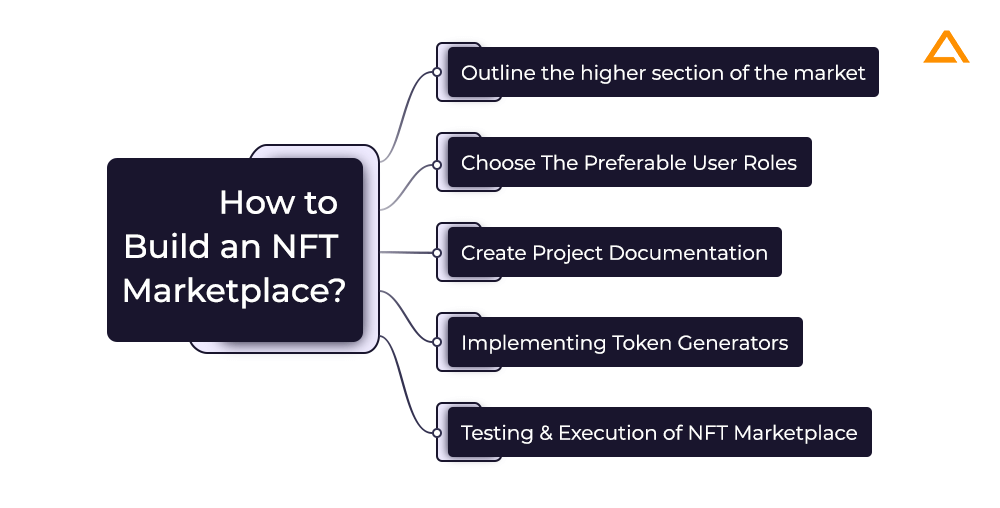
Outline the higher section of the market
To create a thriving NFT market, users must be knowledgeable about the current market. Because the provider in the vertical market provides goods that satisfy a specific target market’s demands, consumers must emphasize the specific niche more than the horizontal market.
Choose The Preferable User Roles
There are just three jobs out of the many available on your NFT Marketplace Platform: buyers, administrators, and investors.
Project Documentation
The creation of the project documentation is the initial stage of creating a website. If the user is willing to oversee a remote development team, project documentation becomes crucial for the creation of such a non-fungible tokens Marketplace. The project documentation stages provide a complete road map for the next step, which saves a lot of time.
Implementing Token Generators
A user may now utilize token generators to create tiny contracts. Small contracts are self-executing agreements in which the terms and conditions between the buyers and sellers are expressed as code lines. The code and understanding are present on the secure, decentralized blockchain network. Utilizing reasoning on the website is the primary goal of this stage.
Testing & Execution of NFT Marketplace
Users must find flaws and repair them because this is the last phase. Users may be sure that the current project satisfies the specifications of the upcoming projects by doing software testing. This stage is crucial since a tested software product will guarantee security, excellent performance, and dependability after launch.
How does the NFT Marketplace works?
Following are a few straightforward procedures that makeup how an NFT Marketplace operates:
- The customers subscribe to an NFT Platform.
- Create a cryptocurrency wallet on the platform to store non-fungible tokens and digital currency.
- The users build an NFT and adequately set the audition’s settings.
- The offered collection is noted.
- The non-fungible token may be seen on the auction’s list of items for sale.
- The purchasers submit their bids throughout the auctions.
- After the bidding, the seller is informed of the winning offers from the purchasers.
- The platform also facilitates the transfer of funds and completes the transaction.
For the effort put forth by the platform to move money and non-fungible tokens, the NFT Marketplaces charge a tiny fee on the selling amount.
have a unique app Idea?
Hire Certified Developers To Build Robust Feature, Rich App And Websites.
Wrapping Up!
The moment appears reasonable to invest in White-Label NFT Marketplace Development given the present trend’s steadily rising popularity. It might be challenging to provide an accurate NFT Marketplace Development Cost Estimation due to the broad range of NFT features. Although it is recommended that you work with specialized developers, you should also rely on how complex the application you want to create will be.
